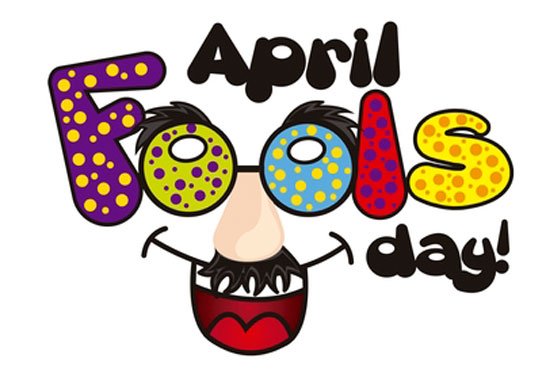April 1, April Fools Day | Funny

April Fools Day (infrequently called All Fools' Day)
is a yearly festival in some European and Western nations recognized on April 1 by playing reasonable jokes and spreading deceptions.
The jokes and their casualties are called April fools. Individuals playing April Fool jokes frequently uncover their trick by yelling "April trick" at the heartbreaking victim(s). A few daily papers, magazines and other distributed media report counterfeit stories, which are generally clarified the following day or underneath the news segment in littler letters. Albeit well known since the nineteenth century, the day isn't an open occasion in any nation.
Beside April Fools' Day, the custom of putting aside daily for the playing of innocuous tricks upon one's neighbor has verifiably been generally normal on the planet.
Also called: All Fools' Day

Type: Cultural, Western
Significance: Practical jokes
Observances: Comedy
Date: April 1
Frequency: Annual
Next time: 1 April 2019
On this day in 1700,
English pranksters start advancing the yearly convention of April Fools' Day by playing viable jokes on each other.
Despite the fact that the day, additionally called All Fools' Day, has been commended for a few centuries by various societies, its correct sources remain a secret.
A few antiquarians hypothesize that April Fools' Day goes back to 1582, when France changed from the Julian logbook to the Gregorian timetable, as called for by the Council of Trent in 1563. Individuals who were ease back to get the news or neglected to perceive that the beginning of the new year had moved to January 1 and kept on commending it amid the most recent seven day stretch of March through April 1 turned into the object of jokes and tricks.
These tricks included having paper angle set on their backs and being alluded to as "poisson d'avril" (April angle), said to symbolize a youthful, effortlessly got angle and a naïve individual.
Students of history have additionally connected April Fools' Day to celebrations, for example, Hilaria, which was praised in antiquated Rome toward the finish of March and included individuals sprucing up in camouflages. There's likewise hypothesis that April Fools' Day was attached to the vernal equinox, or first day of spring in the Northern Hemisphere, when Mother Nature tricked individuals with changing, flighty climate.
April Fools' Day spread all through Britain amid the eighteenth century. In Scotland, the custom turned into a two-day occasion, beginning with "chasing the gowk," in which individuals were sent on fake errands (gowk is a word for cuckoo flying creature, an image for trick) and took after by Tailie Day, which included tricks played on individuals' derrieres, for example, sticking phony tails or "kick me" signs on them.
In present day times, individuals have made a huge effort to make expand April Fools' Day scams. Daily papers, radio and TV stations and Web locales have taken an interest in the April 1 custom of revealing ludicrous anecdotal cases that have tricked their gatherings of people.